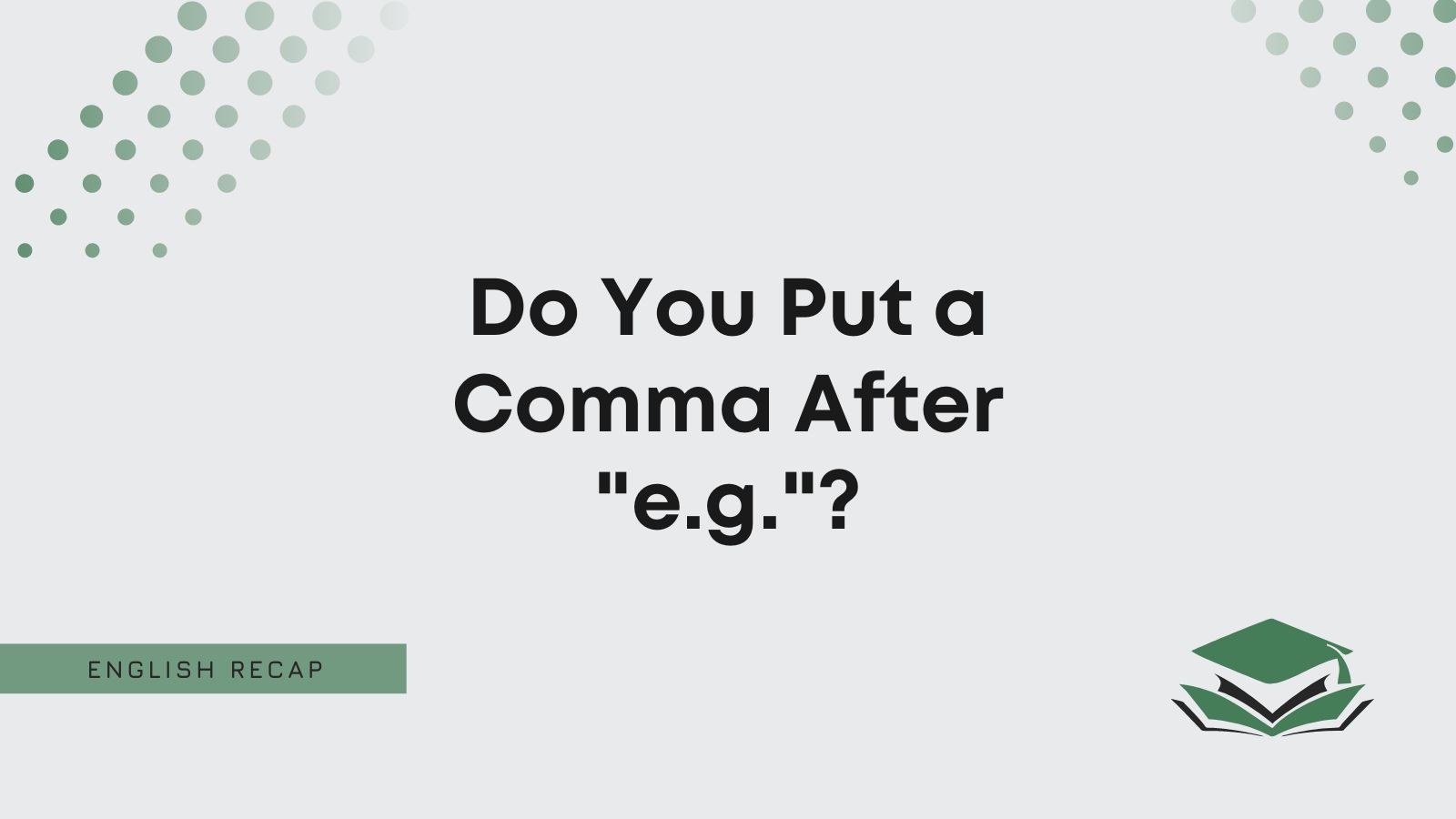Rule 1: You should always put a comma after “e.g.” when you write a text in American English.
- Correct: They went to various cities, e.g., New York, Boston, and Washington.
- Incorrect: They went to various cities, e.g. New York, Boston, and Washington.
Rule 2: In British English, it is unnecessary to put a comma after “e.g.”
- Correct: He is allergic to several types of food. E.g. nuts, wheat, and shellfish.
- Incorrect: He is allergic to several types of food. E.g., nuts, wheat, and shellfish.
Please keep reading the rest of the article to learn more about when to use a comma after “e.g.”
When to Use a Comma After “e.g.”
When deciding whether to put a comma after “e.g.,” you should refer to Rule 1.
Rule 1: Use a comma after “e.g.” when you are writing a text in American English.
The term “e.g.” means “exempli gratia” in Latin, which means “for example” in English. So you use it to include examples of the theme that the previous sentence mentions.
In American English, as with “i.e.,” it is customary to use a comma after “e.g.,” regardless of whether it comes in parenthesis or the middle of a sentence.
- The event will involve several sports, e.g., swimming, running, and cycling.
- Some countries have never qualified for the World Cup (e.g., Venezuela, Finland, and India).
When to Avoid a Comma After “e.g.”
This section informs when you do not need a comma after “e.g.”
Rule 2: You shouldn’t use a comma after “e.g.” when you write a text that follows British English rules.
The term “e.g.” or “exempli gratia” in Latin is used in English to mean “for example.”
In British English, it is not necessary to put a comma after “e.g.” when it appears in parenthesis or mid-sentence.
That is not to say that you will not see some people using the comma in British English. However, it is far less common than in American English and is not a requirement.
- We will cover several topics in the meeting (e.g. sales, marketing, and recruitment).
- People with pre-existing conditions, e.g. diabetes, heart disease, and high blood pressure, are more susceptible to COVID.
Conclusion
In British English, you do not need to put a comma after the term “e.g.” However, when using “e.g.” in American English, it is standard to use a comma after the abbreviation. This rule applies both when the “e.g.” is in parenthesis and when it appears in the middle of a sentence.

